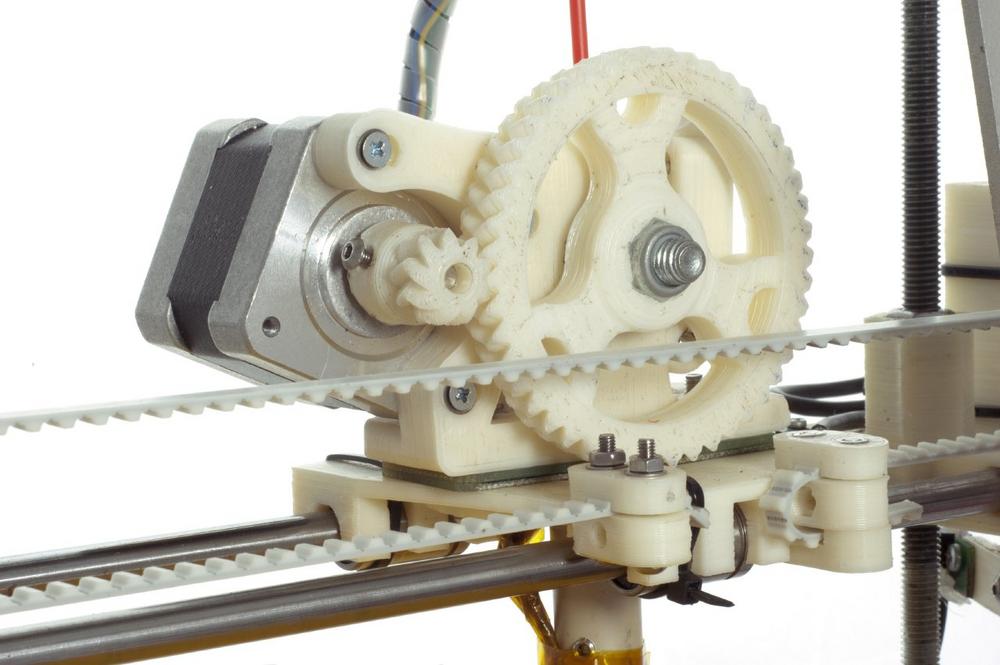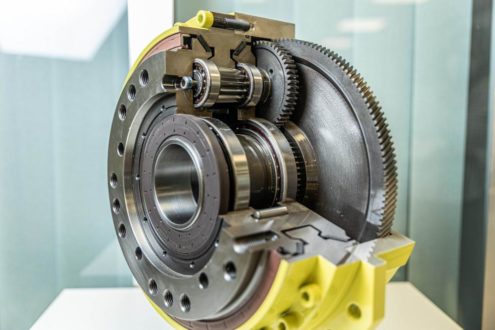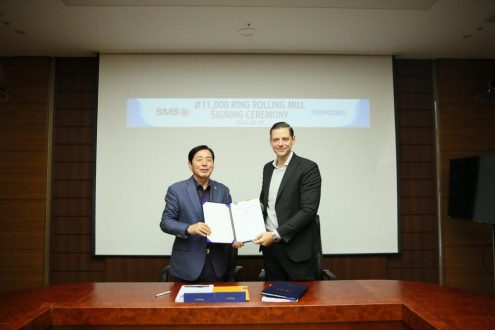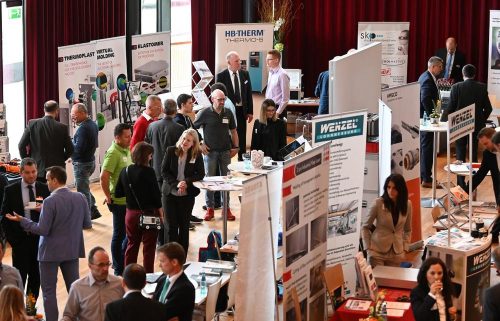
Plastic components with longer service life
Whether it’s sliding doors, laminate, plastic gears or other moving components – there is a variety of applications where materials are subject to friction. Plastics manufacturers are therefore sometimes incorporating solid lubricants into plastics to reduce component wear. However, there are only a relatively small number of solid lubricants suitable for plastics processing. In contrast, there is a much wider range of liquid lubricants, some of which are more effective. In a cooperative effort, the two research institutes have succeeded in encapsulating liquid lubricants in such a way that they can be incorporated into polymers as functional substances and later develop all the advantages of a liquid lubricant in the component.
85 percent less wear
"We managed to incorporate Fraunhofer IAP‘s microcapsules filled with liquid lubricant into thermoplastics using a twin-screw extruder. The challenging task was to mix the microcapsules with thermoplastics under high temperatures without damaging the capsules. Only when friction occurs in the final component the capsules should break and release the lubricant. This allows the component to lubricate itself automatically", explains Moritz Grünewald, researcher in the Materials Development Group at the SKZ Plastics Center. "Our friction and wear tests showed a reduction in wear of up to 85 percent on plastic-steel pairings. Thus, components last significantly longer and generate less microplastic."
Based on these results, the material system is being optimized further for potential applications. The development is now focusing on improved mechanical and thermal properties of the self-lubricating plastics.
Reinforcement of self-lubricating plastics
The additional use of reinforcing materials such as fibers is intended to make the self-lubricating plastics more mechanically stable. In the project, the researchers investigate, which type of fiber is best suited for this purpose and how the microcapsules can be optimally bonded to the plastic matrix. In addition, the capsules are also to be incorporated into higher-melting plastics in order to further widen the technical application possibilities. To this end, even more stable capsule wall materials are being developed in close cooperation between the project partners. "The main challenge is that the capsules should not break until they come into frictional contact in the final application. However, if we introduce additional fibers and increase the temperatures, the stresses on the capsules increases during the mixing process," explains Dr. Alexandra Latnikova, microencapsulation specialist at Fraunhofer IAP. Her team develops the micorcapsule systems.
Great interest from the plastics industry
Numerous inquiries from industry highlight the need for novel plastics with optimized friction and wear properties. Microencapsulation technology has major advantages for companies in this regard: the wide range of liquid and advanced lubricants can now be used as internal lubricants with on-demand release properties. The project is accompanied by a committee that includes companies from all sectors of the plastics industry, lubricant manufacturers and microencapsulators. The project is open to further partners.
The project "Tribologically effective pseudo-solids for mechanically and thermally highly- loaded thermoplastic components" 21707 BG of the Fördergemeinschaft für das Süddeutsche Kunststoff-Zentrum e.V. FSKZ is funded by the German Federal Ministry for Economic Affairs and Energy via the German Federation of Industrial Research Associations AiF as part of the program for the promotion of joint industrial research IGF.
The Fraunhofer IAP makes materials fit for the future. Creative solutions are the key to mastering the challenges of the present and the future – whether climate change, pandemics, energy transition, structural change or new mobility concepts.
At Fraunhofer IAP, we are tackling this task with innovative materials, processes and technologies. We address the entire value chain – from the idea to the customized prototype.
The SKZ is a member of the Zuse community. This is an association of independent, industry-related research institutions that pursue the goal of improving the performance and competitiveness of industry, especially small and medium-sized enterprises, through innovation and networking.
FSKZ e. V.
Friedrich-Bergius-Ring 22
97076 Würzburg
Telefon: +49 931 4104-0
https://www.skz.de
SKZ – Das Kunststoff-Zentrum
Telefon: +49 (931) 4104-352
E-Mail: m.gruenewald@skz.de
Fraunhofer IAP
Telefon: +49 (331) 568-1207
E-Mail: alexandra.latnikova@iap.fraunhofer.de
![]()





